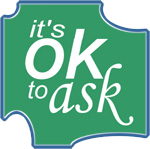REDUCE 9-1-1
DELAYS

This 5 Minute Task
Could Save Your Life!
 It's okay
to call the non-emergency number
at 9-1-1 or other emergency services and ask for their guidelines regarding address
signage, the medical data sheet, fire hydrant clearance,
utility signage and their sirens and lights expectations or
other emergency response questions.
It's okay
to call the non-emergency number
at 9-1-1 or other emergency services and ask for their guidelines regarding address
signage, the medical data sheet, fire hydrant clearance,
utility signage and their sirens and lights expectations or
other emergency response questions.
It's okay to inquire about a 9-1-1 telephone notification system where they can notify the public about selected emergency conditions and register your mobile phone.
It's okay to provide Special Directions To Your Home. If more detailed directions would help emergency personnel to locate your home, provide additional information to your premise page.
It's okay to include the location and description of fuel, propane tanks, explosives, ammunition storage, hazardous chemicals in case of fire. Also include a description of potentially dangerous pets or other animals that could effect the response time or safety.
It's okay to include Special Conditions In Your Home. You should consider registering with 9-1-1 if you have small children, or if individuals in your home are bedridden, handicapped, hearing impaired, visually impaired, speech impaired or have special medical conditions or medication needs. Typical examples are listed below.
It's okay to call the non-emergency number at the 9-1-1 center and ask for their guidelines to register additional information regarding your property and the occupants. This information can be included with your address when any Fire, Law Enforcement, or EMS/Life Squad personnel respond to an emergency call from your home.
Most 9-1-1 systems have the ability to record information specific to your home with a page typically called the Premise Page. Download Items to Consider for 9-1-1 Premise Page. Here are some suggested items that will allow the responders to better understand conditions in your home prior to arrival.
| Someone at this location: | |
| has small children in the home. | |
| is blind or visually impaired. | |
| is hard of hearing or deaf. | |
| has a speech impairment. | |
| has a cognitive impairment that can involve memory, language, thinking and judgment issues. | |
| is physically linked to equipment required to sustain his or her life. | |
| is bedridden, uses a wheelchair, or has a mobility impairment. | |
| has a psychiatric impairment. | |
| may be using an electronic device for text communication utilizing a telephone line. | |
| General Symptoms may be: | |
| Aggressive in New Situations | |
| Bed Ridden | |
| Experiences Sensory Overload | |
| Fears Being Touched | |
| Fears Flashing Lights | |
| Fears Loud Noises | |
| Flight Risk, May Run or Wander | |
| May Hurt Themselves | |
| Medical Alert Status | |
| Medically Fragile | |
| Non-Verbal | |
| On Medication | |
| Seizures | |
| Tourette Syndrome | |
Watch
How to Reduce 9-1-1 Delays!
Documents to Reduce 9-1-1 Delays
The information,
documents and downloads on this website are open source and free to download
and use for your organization. Under no circumstance are they to be sold or
used to make a profit. All Rights Reserved - Lee Hite
Reduce 9-1-1
Delays (Checklist)
Items for
the 9-1-1 Premise Page
Emergency Medical Data
Sheet English
9-1-1 Addressing That Works
Emergency Medical Data
Sheet Spanish
Emergency Shut-Off Signage
Emergency Medical Data
(Long Form English)
Healthy Hydrants Guideline
Emergency Medical Data
(Example)
It's Okay to ASK
Alternate Key Holder
Registration
Sirens & Lights Guidelines
Alternate Key Holder
Information
Family Records Retention
Forms
Become a Helpful Responder – Not a Helpless
Bystander